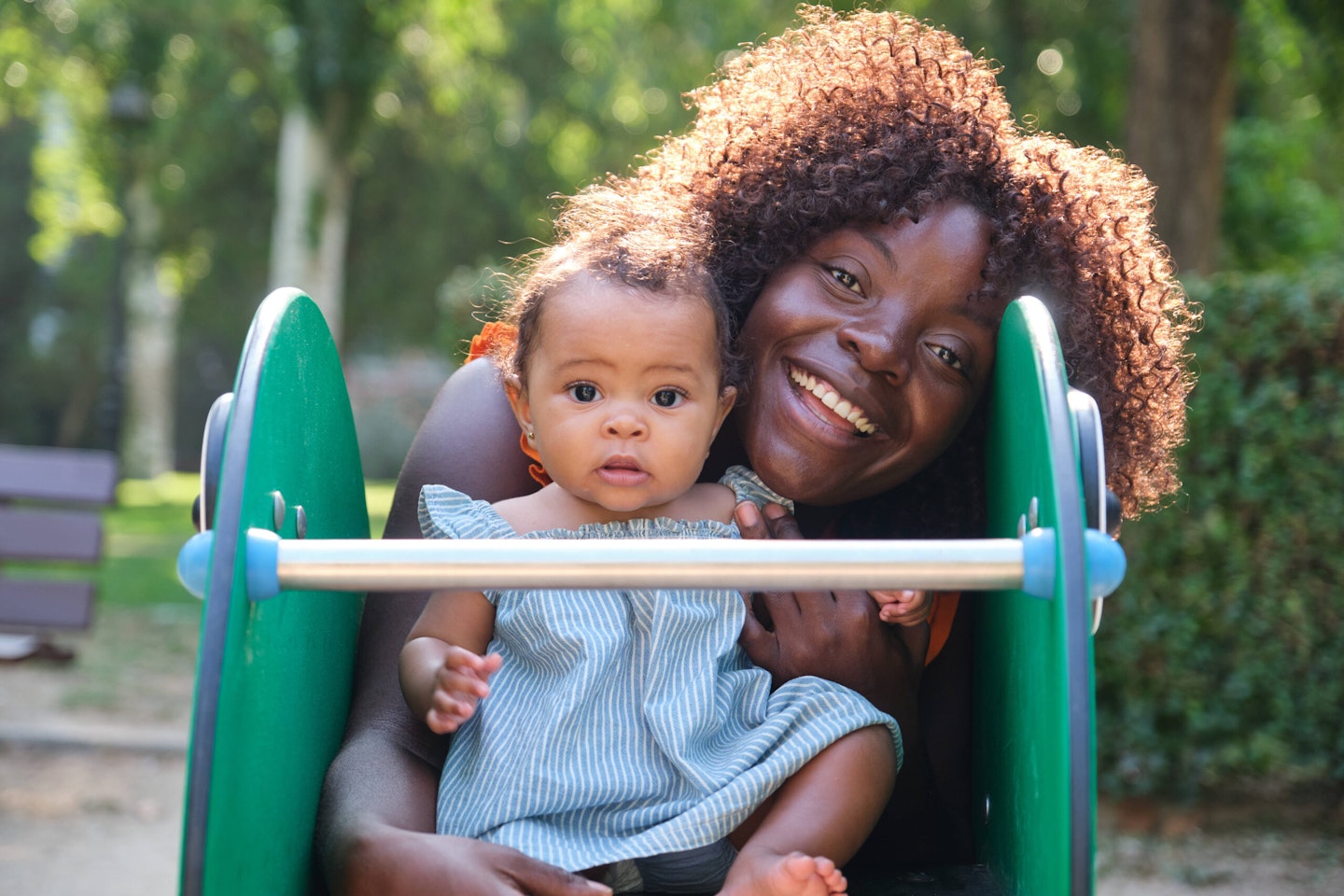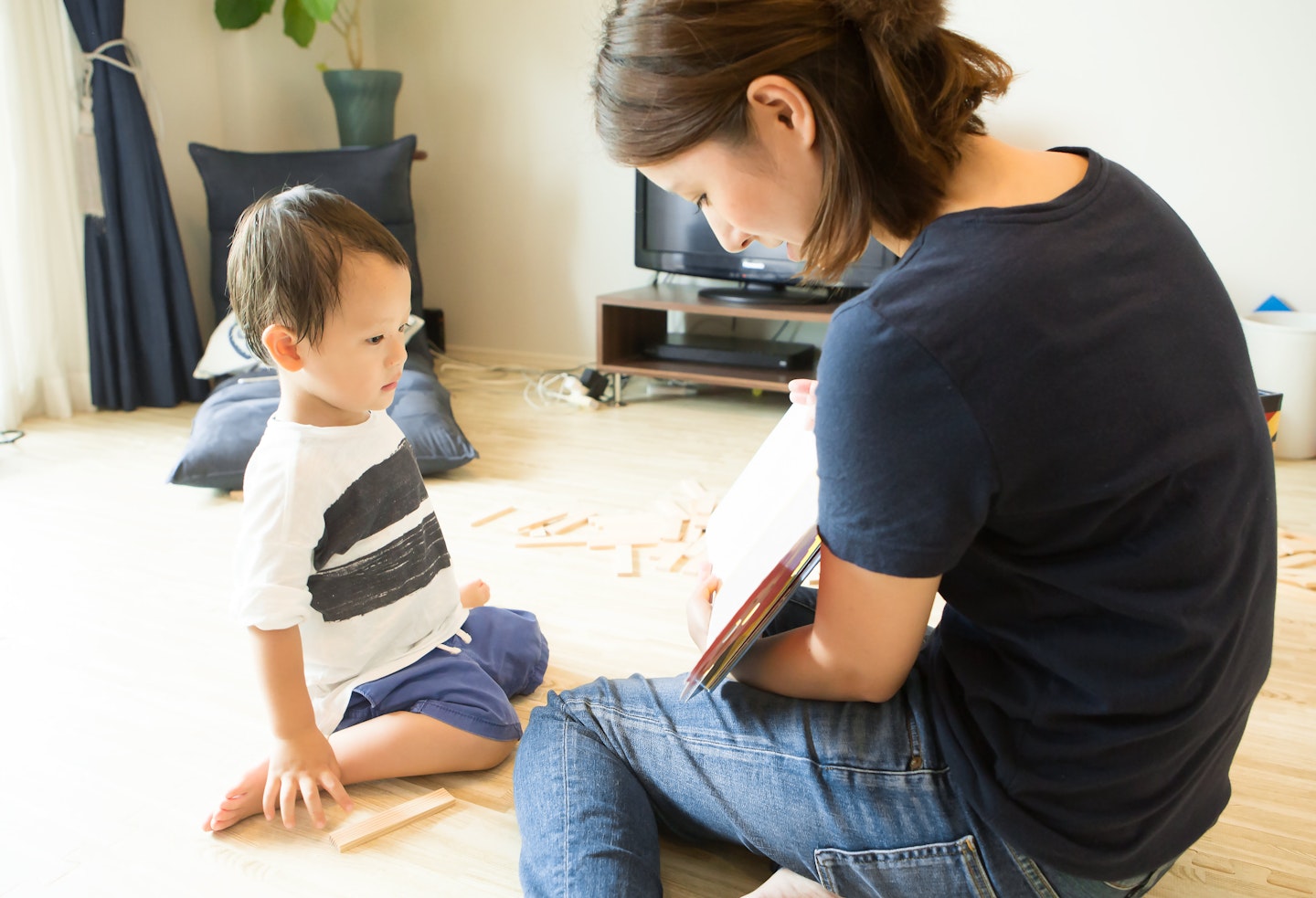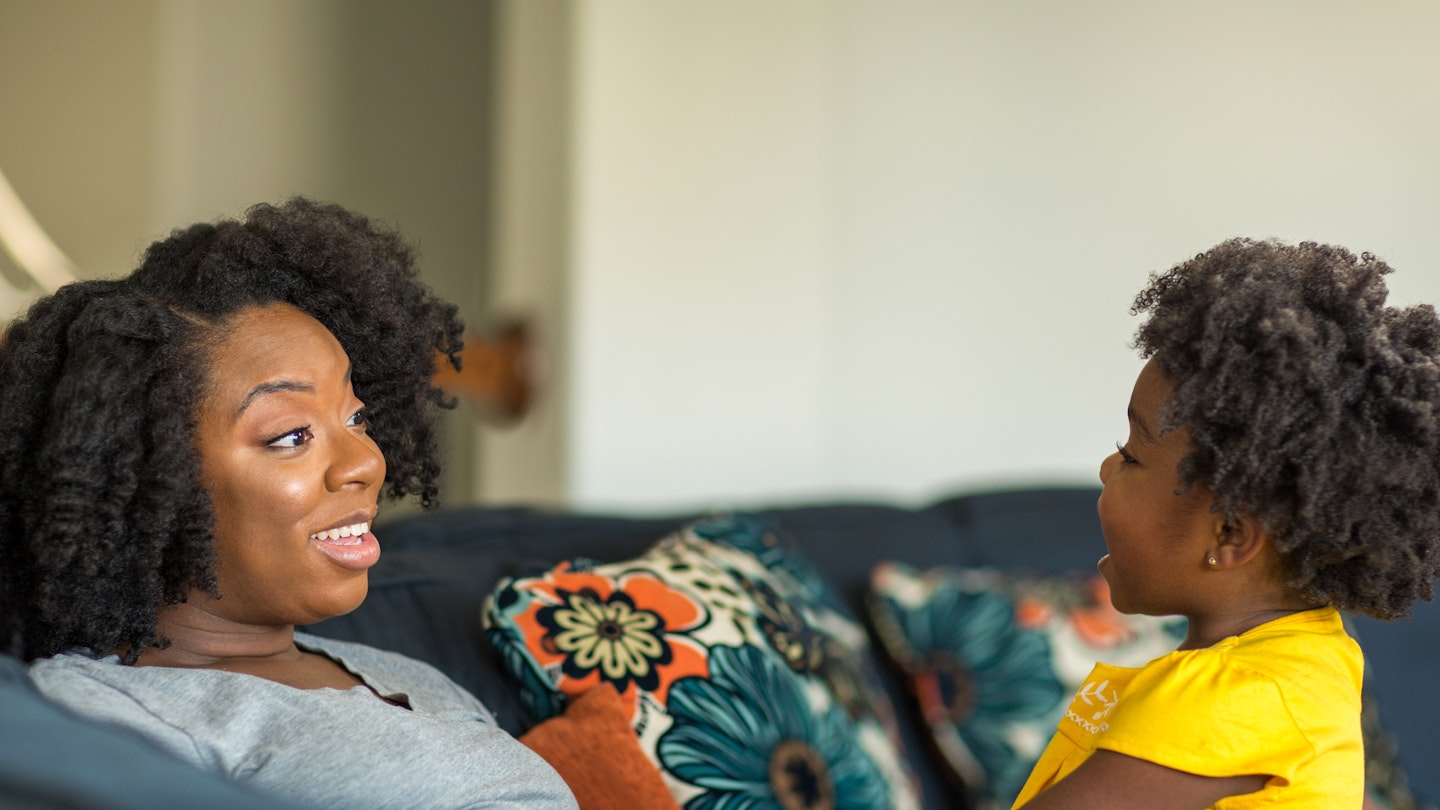October is a special time in the UK when we come together to celebrate the contributions of Black people in Britain. This year's Black History Month theme is 'Reclaiming The Narrative,' highlighting untold stories and history from the Black community. October is the perfect opportunity to talk to your children about important topics like diversity and inclusion, no matter your background. We understand these conversations can feel a bit daunting, so we've turned to experts for tips on how to guide your family through these valuable discussions.
With Black History Month (BHM) being such a vital topic to discuss openly with your family, Mumfluencer and owner of Chic and Discreet, Chaneen Saliee, shares her tips to help us all learn more and celebrate different cultures.
It's important for children to hear about history. It's particularly important to let all children see a range of different black figures from our history. Some fantastic children's books can help explain the stories of important Black historical figures in an engaging and easy way for kids to understand.
Black History Month isn’t the only time we should be talking to our kids about black history and black people. These conversations and interactions should be part of daily life, which will teach all children that black people, just like anyone else, are worthy to occupy space and time in our lives all year round. It also helps remind black children - who have often been left feeling less than and not good enough - to feel heard, seen and validated always. Most importantly, it's vital to remind children of a wealth of beautiful black history outside of schools in the UK and America. Having these conversations outside of school and outside of BHM is the most effective way to show them that.

For example, the history of many African countries tells a vastly different story about black people and their experiences. So you could look up African or Caribbean countries and their independence days and learn and celebrate around that throughout the year.
Teaching our children about Black History Month
We can teach our children by talking to them and helping them learn through things like reading books," says Chaneen. "We want all our children to recognise Black History Month by asking them what they already know about this celebration and checking in that they know October is dedicated to highlighting this recognition so we can take what we learn and celebrate all year round.
Families can enjoy plenty of child-friendly activities during Black History Month in October all over the UK. Chaneen encourages parents, saying, "It’s important for children to see themselves represented, as well as others, in a positive and relatable way."
'Children don’t naturally discriminate', says David Schonfeld, M.D., professor of paediatrics at the University of Southern California and Children's Hospital Los Angeles. Children can learn racism through subtleties, such as never seeing black people in places of prominence. As a result, the views they begin to form of the world, such as, 'black people aren’t as smart as white people, that’s why there has only been one black president,' which is something a student of mine said to me during an English lesson. This is where anti-racist work comes in. We have to actively shape the world around our children so they see and enjoy black people and their talents just as much as anyone else.
We love this video created by CBeebies of dads speaking with their daughters about what Black History Month means to them.
Depending on how old your child is, they might want to ask more questions about Black history or share with you some things they’ve learned outside of the home. You can introduce different cultures to your children by watching age-appropriate films with them. Why not make it an event and order food from those cultures, too?
Consuming ourselves in knowledge as adults and passing on this to our children is key to helping shape the children of our future, and teaching them diversity and inclusion is of the utmost importance.

We've compiled some useful resources to help your child learn more about Black history.
Activities to teach inclusion and diversity
Here are some fun ways to bring a fresh and creative perspective to Black History Month for your family.
Age 0-2
Play with toys and look at board books that portray black people positively. At this age, children will begin to differentiate between people’s skin colour, but through play and reading, they will understand that everyone is treated equally.
Age 2-5
There should be more books and play, lots of crafts, and some colouring. Crayola has brought out coloured pencils and crayons in different skin tones. Try colouring in images of people using different tones and comment on what makes each beautiful.
Age 6-10
Again, continue with books, films and playing with toys to teach inclusion and diversity. At this age, children are much more capable of understanding history and why some things happen. You can look at some books and news clippings and recreate your own posters. Or your child might like to choose their black history hero and create a fact sheet of their achievements.
At every stage, it is essential to encourage friendships with children and families from diverse backgrounds. Of course, always be respectful and not force friendships if they do not feel natural. Tokenism is the practice of making only a perfunctory or symbolic effort to be inclusive to members of minority groups, especially by recruiting people from underrepresented groups to give the appearance of racial or gender equality. This occurs to deflect accusations of discrimination or to ‘prove’ you’re not racist.” In basic terms, if it happens and feels natural, then it is okay.
This compilation by Colour Celebration of Seven Books to Help Teach Your Kids About Black History offers a wide range of book suggestions.
Colour Celebrations is also a brilliant brand that centres around celebrating children of colour. Their shop features height charts, milestone cards and clothing.
Best books to celebrate Black History Month
 Amazon
Amazon This incredible volume educates and inspires as it relates true stories of Black men in history. This illuminating text brings to life both iconic and lesser-known figures.
 Amazon
Amazon Featuring 40 trailblazing black women in the world's history, this book educates and inspires as it relates true stories of women who broke boundaries and exceeded all expectations.
 Amazon
AmazonA short, essential introduction to Black British history for readers of 12+ by award-winning historian and broadcaster David Olusoga.
 Amazon
AmazonThis children's book boasts more than 30 visual timelines, which explore the biographies of the famous and the not-so-famous - from royalty to activists, and writers to scientists, and much, much more. Stunning thematic timelines also explain the development of Black history - from the experiences of black people in the US, to the story of postcolonial Africa.
 Amazon
Amazon This gorgeous, lyrical ode to loving who you are, respecting others, and being kind to one another comes from Empire actor and activist Grace Byers and talented newcomer artist Keturah A. Bobo.
 Amazon
Amazon A story about the triumph of hope, love, and determination,Coming to England is the inspiring true story of Baroness Floella Benjamin: from Trinidad, to London as part of the Windrush generation, to the House of Lords.
Follow ten-year-old Floella as she and her family set sail from the Caribbean to a new life in London.
Facts and Questions about Black History Month
What is Black History Month?
Black History Month is an annual celebration in the UK that takes place every October. It aims to recognise and celebrate the contributions, culture, and history of Black individuals and communities in Britain.
What is the 2024 theme of Black History Month?
The 2024 Black History Month theme is “Reclaiming Narratives,” marking the shift towards recognising and correcting the narratives of Black history and culture.
Where can I find resources to learn about Black history?
The internet is a fantastic place for finding resources, books, documentaries, and local events focused on Black history. However, why not take your little one to the local library, as they often have curated lists of age-appropriate materials?
About the expert
Chaneen Saliee
Chaneen Saliee is a black mother of two beautiful girls based in London. She is an author and social media influencer who also won The Mum List 2020. Chaneen owns her affordable breastfeeding clothing line, Chic and Discreet. She is also the author of Solidarity, a five-star-reviewed book.

